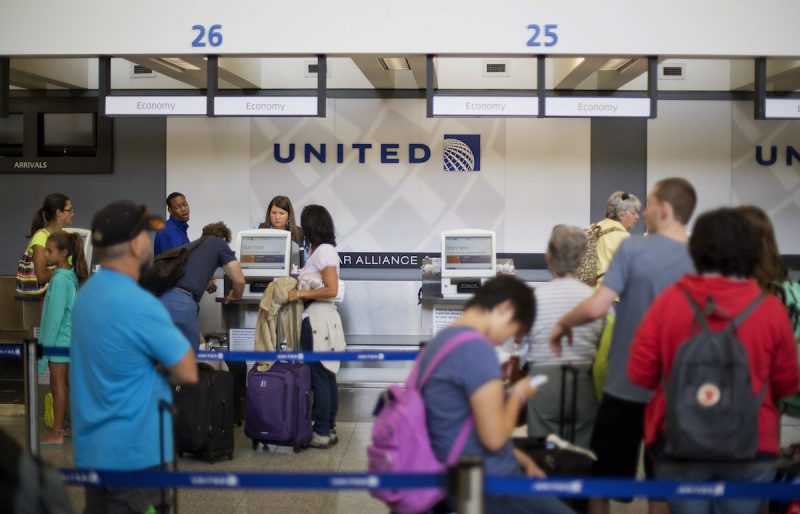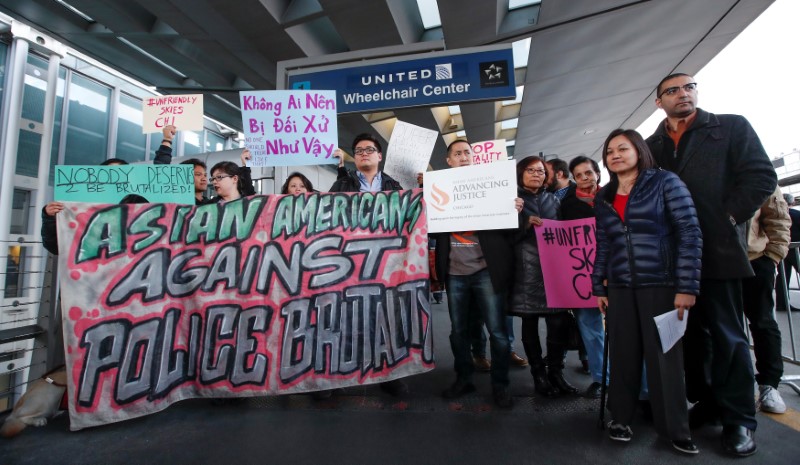United Airlines is in the middle of a public-relations nightmare.
In case you missed it, on April 10, a video showing aviation officers dragging a passenger off a flight went viral. The airline said it needed room on the overbooked plane for crew for another flight. When it couldn’t find enough volunteers, United selected the 69-year-old man, David Dao, and several other passengers to deplane.
Dao refused, and officers dragged him down the aisle and off the flight. He later went to the hospital for non-life-threatening injuries.
Some people are now threatening to boycott the airline, using the hashtag #BoycottUnited, which has over 3.5 million impressions on Twitter.
The research firm YouGov has been tracking consumer perceptions of United every day since July. It asked consumers to give the airline a likeability score from -100 to 100, with zero being neutral. It surveyed a total of 4,800 people daily from April 9 to 16 and found that United's score had plunged to -64 from 1.8.
Despite the backlash, the incident and boycott likely won't greatly affect United's sales, Erich Joachimsthaler, CEO of the consultancy firm Vivaldi, told Business Insider.
He says the airline has a monopoly over certain routes, so many travelers will have no choice but to fly United. Those who buy flights through third-party discount sites like Kayak or Expedia also likely will want to get the cheapest tickets possible, even if it's through an airline they dislike.
"If you live in Charlottesville, Virginia, you simply have no other way to go to LaGuardia unless you fly United," Joachimsthaler said, referring to the airport in New York City.
The route monopoly is part of United's strategy and largely a product of its 2010 merger with Continental Airlines, he said. Because of the consolidation, United can reduce competition while increasing fares. This isn't unique to United either - a dozen major airlines have merged in the past 12 years, and today about 80% of America's air traffic is spread among four mega-carriers: United, American Airlines, Delta Air Lines and Southwest Airlines.
Joachimsthaler said people were reacting strongly to the video because most travelers could identify with Dao even if they hadn't personally been dragged off a flight. The video taps into consumers' growing dissatisfaction with airlines' declining service standards, evident in their charging additional baggage fees or overbooking flights.
"This is not about overbooking. I think the incident is about airline bullying," he said. "We have all experienced airline bullying in one form or another. In this case, the airline bullying not only went way out of control, it also happened with an airline that has a history of real customer-service problems. It's an issue that has come to the forefront of American travelers' minds."

Though the United incident may not hurt the airline's sales, Joachimsthaler predicts it will still have ripple effects that could make the airline less efficient on a daily basis.
"The NPS ratings will continue to go down and spiral, and now consumers will be extremely sensitized for anything that will occur on flights," he said.
United CEO Oscar Munoz first responded to the incident by calling Dao "disruptive" and "belligerent," but he apologized a day later. Joachimsthaler said this was the wrong response because it treated the incident as a PR crisis rather than a systemic issue within United.
"It reinforces United's posture of having a do-nothing attitude and that they are just providing lip service to the press," he said. "And even though they are being punished thanks to social media and iPhones, they are not suffering the harm, because it will not affect sales - not even in the short term."

